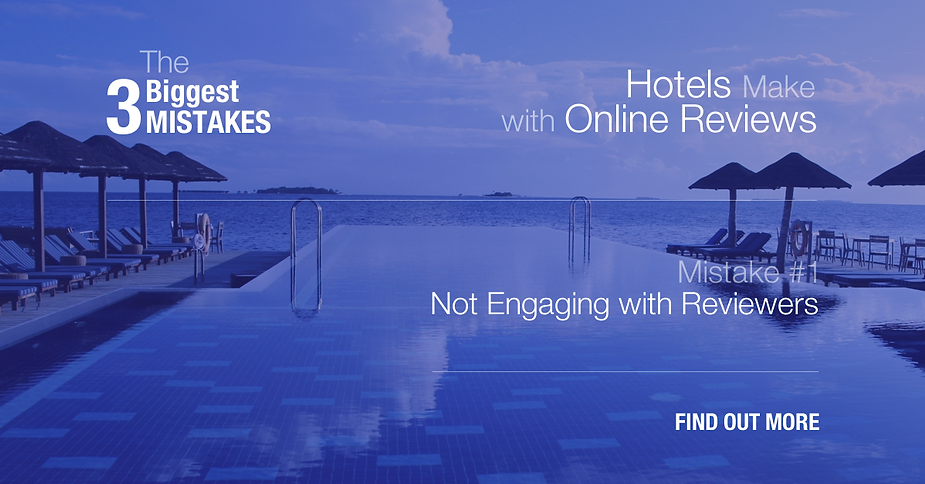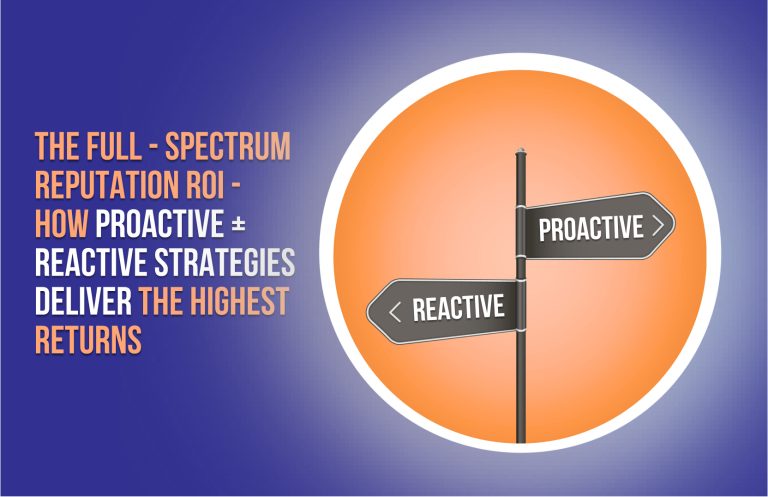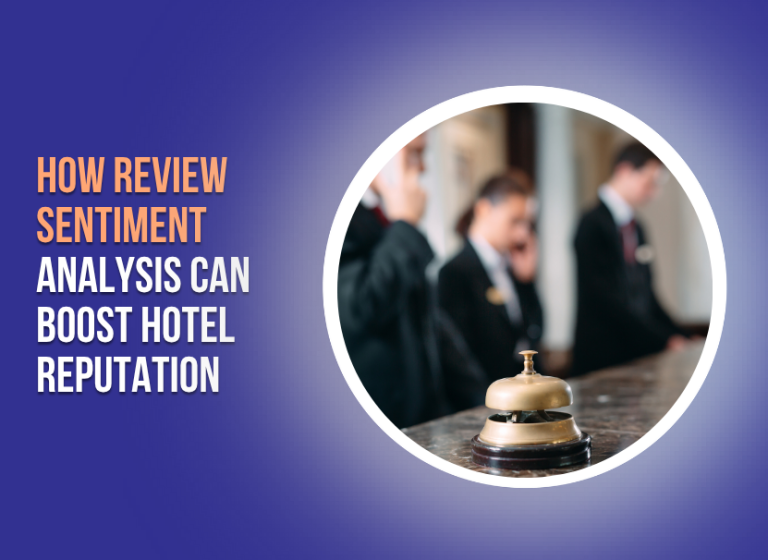There is no mistaking the importance of Online Review Management in the hospitality industry. When selecting a hotel, travelers are relying less on traditional advertising, and more on review site ratings and other user-generated content to make their decision. In fact, studies show that 85% of consumers trust online reviews as much as a personal recommendation and that potential guests read an average of 7 reviews before forming their opinion.
However, even while understanding how important Online Feedback Management is, we find that hotels are still making these three key mistakes:
Mistake No. 1: Not Engaging with Reviewers
As a reputation management and guest engagement agency, we talk to many hotels about their management response practices and find that most hotels fit into one of the following categories:
-
The Silent Stanley: As you can probably guess, this group is made up of hotels that do not respond, or do not consistently respond, to the reviews their hotels earn on websites like TripAdvisor, Google, Booking.com, and more.
-
The Copy Cat: Many hotel companies have a Standard Operating Procedure which requires a management response to all reviews. However, if no one is monitoring the quality of those responses, the Copy Cat will simply use the copy and paste function posting the same generic reply on each review. Your guests are smart and they will quickly notice if your Online Feedback Management strategy is built around the same response.
-
The Last-Minute Larry: The Larrys are defined by their delayed responses, and they can be found huddled in their office quickly posting their replies in the final days before month-end reports are generated.
-
The Reputation Rock Star: Rock Stars read all reviews daily and promptly reply with a personalized response to every review; they value guest feedback and they understand how management responses influence the large number of active shoppers reading their reviews.
If your hotel’s Digital Review strategy aligns with this last category, congratulations on putting together a proactive review response program!
However, if your engagement practices sound more like one of the first three categories, it’s time to make a change. Guests will interpret your unresponsiveness, copied and pasted generic thank-yous, and late comments as a lack of interest in receiving feedback, and these practices certainly do not reflect the core values of the hospitality industry. Responding to each review with a unique, personalized reply allows you to continue the conversation with your guests – even after they have left the hotel. Plus, it reinforces the importance that you put on guest feedback, building loyalty and trust, and laying the groundwork for a long-term relationship.
This same review and response can also help you win over potential guests who are shopping for a hotel in your area. The information shared in these communications allows the shopper to learn more about your hotel and sets the expectation of the level of service they can anticipate receiving.
Studies show that consumers weigh management engagement in their booking decisions with 80% believing that a hotel that responds to their reviews cares about its customers while 65% of consumers shared that they are more likely to book a hotel that engages through management responses versus a comparable hotel that is not engaged.
Mistake No. 2: Not Reacting to Guest Feedback
Hotels can receive anywhere from dozens to thousands of reviews each month, sharing what guests loved most about their stay and where there may be areas of opportunity. Savvy hoteliers use this feedback as part of their Digital Review practices to make changes to their business, elevating both their guest experience and online reputation.
You don’t need to plan an immediate remodel or turn your continental breakfast into a full American breakfast buffet simply due to a few reviews. However, if you evaluate your feedback objectively, you will be sure to find a few consistent comments with easy and affordable solutions. Software tools such Revinate and TrustYou can be used to provide your team with sentiment analysis to help identify these areas.
Make sure to share the actions that you are taking to improve your guest experience when responding to reviews. The reviewer will know that their feedback was addressed and appreciated, and you might even persuade a guest who was considering switching hotels on their next trip to return to yours.
Potential guests reading the review will also be impressed with your responsiveness and awareness of your solutions, giving them an additional reason to book.
Mistake No. 3: Not Inviting Your Guests to Share a Review
Say you have a 300-room hotel that averages 75% occupancy, then you probably have somewhere between 225 and 450 guests, based on double occupancy, in your hotel each night. While we all know that unhappy guests are more likely to speak up, we also know that their experience is not typical of the average stay. This means that well over 200 guests are enjoying a 3,4, or 5-star experience at your hotel at this very moment.
If you are only averaging 1 review per day or perhaps even every other day, despite having hundreds of guests in-house each night, then your Web Review strategy is not taking advantage of your potential. Increasing your review volume can elevate your reputation by more accurately reflecting your guest experience, and the rise in new reviews can also influence your hotel’s ranking and overall score.
The best way to increase your review volume is to simply ask your guests as part of your Online Feedback management strategy to share a review. We just did the math, so you know that there are many happy guests in-house right now. Most would be open to sharing their feedback but don’t, often because they were not encouraged to do so.
A few ways to invite your guests to share a review include emails, TripAdvisor cards, survey links, or an authentic verbal invitation; and be sure to include as many guests in this process as you possibly can! We have found conversion rates to grow when hotels invest in Guest Engagement Training. This training teaches your staff to go beyond the standard “how did you enjoy your stay?” which so often generates generic feedback, and instead uses more targeted questions which reveal genuine feedback about the hotel experience.
How Can Your Hotel Avoid These Online Review Management Mistakes?
Every hotel and restaurant should have a reputation management strategy in place that allows them to put their best foot forward online.
-
Avoid costly mistakes by building your online review strategy around the three principles of engaging, reacting, and inviting.
-
Identify the appropriate person or partner to read and respond to your reviews with a personalized message on a regular basis.
-
Discuss guest feedback with your team and work together to create solutions to common guest complaints, and implement tactics that will increase review volume through guest engagement and outreach.
By prioritizing these tactics, you can begin to create a program that will elevate your guest experience and enhance your online reputation.
At The Reputation Lab, we work with hotels and restaurants to facilitate a reputation management strategy aimed at increasing online visibility, engaging your customers, and converting more shoppers to future guests and revenue producers. If you are interested in learning how a reputation management strategy can benefit your business, we invite you to email us via our secure contact form to set up a no-pressure consultation or call us at 855-979-6800.




